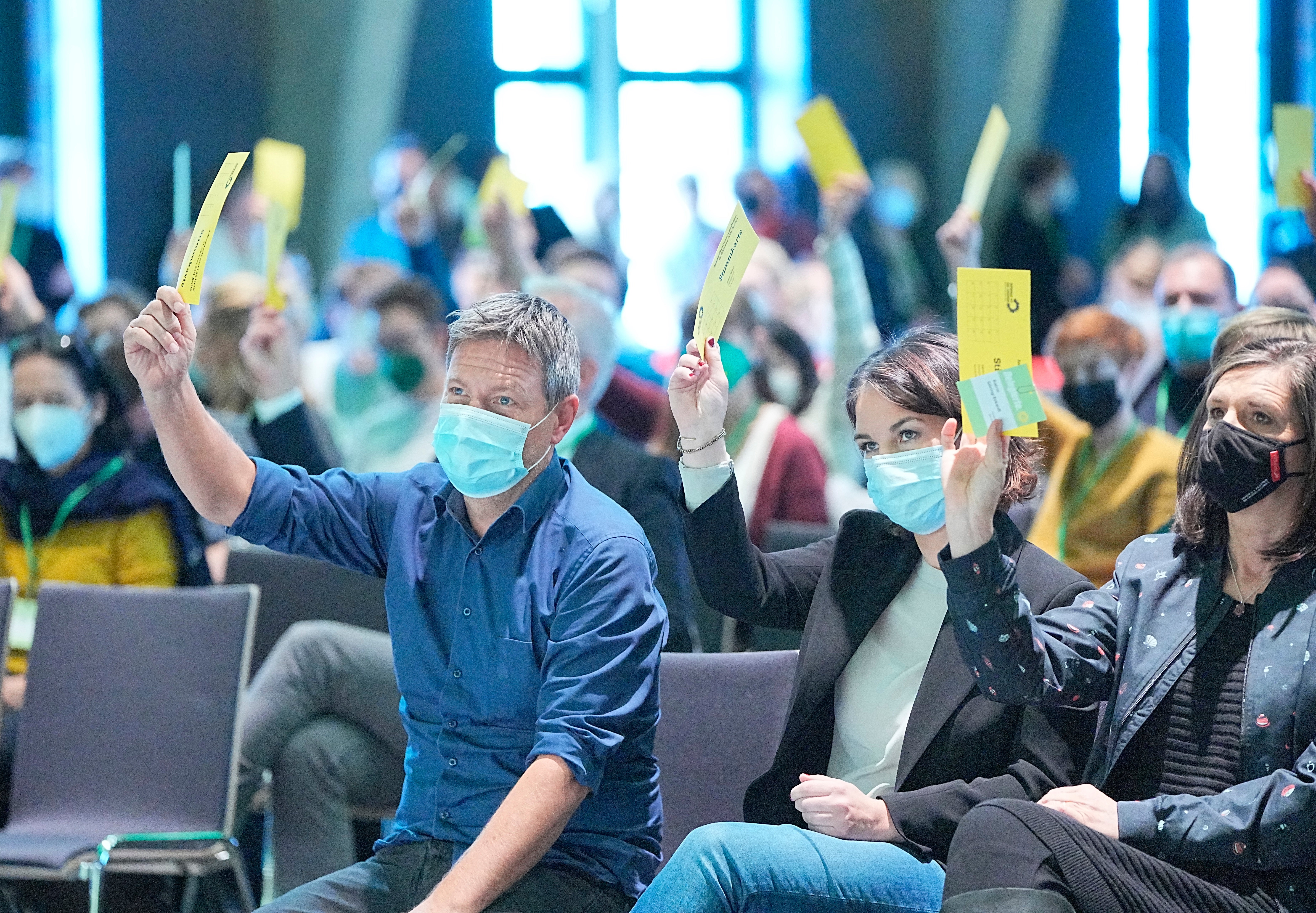German Greens agree to start formal talks on new government
Germany’s Green party has given its blessing to opening formal coalition talks on a new government that would speed up the country’s exit from coal-fueled power and the expansion of renewable energy

Your support helps us to tell the story
From reproductive rights to climate change to Big Tech, The Independent is on the ground when the story is developing. Whether it's investigating the financials of Elon Musk's pro-Trump PAC or producing our latest documentary, 'The A Word', which shines a light on the American women fighting for reproductive rights, we know how important it is to parse out the facts from the messaging.
At such a critical moment in US history, we need reporters on the ground. Your donation allows us to keep sending journalists to speak to both sides of the story.
The Independent is trusted by Americans across the entire political spectrum. And unlike many other quality news outlets, we choose not to lock Americans out of our reporting and analysis with paywalls. We believe quality journalism should be available to everyone, paid for by those who can afford it.
Your support makes all the difference.Germany's Green party gave its blessing Sunday to opening formal coalition talks on a new government that would speed up the country's exit from coal-fueled power and the expansion of renewable energy.
A congress of the environmentalist party signed off on negotiators' recommendation to open full-fledged talks on a government led by center-left Social Democrat Olaf Scholz The pro-business Free Democrats, who usually ally with the center-right, would be the coalition's third partner. Their leadership is expected to give its approval on Monday.
The proposed coalition could be “a big win for the Greens for Germany,” co-leader Robert Habeck told delegates. He added that “in the coming government, the Greens can take on more responsibility for our country than ever — we will be drivers of major transformations.”
A preliminary agreement after initial exploratory talks calls for Germany to accelerate its exit from coal-fueled power, currently due by 2038, so it “ideally” happens by 2030. That is a key Green demand. It also pledges to speed up “drastically” Germany's expansion of renewable energy generation, but says there will be no overall speed limit on Germany’s highways, which the Free Democrats opposed.
There has been some criticism from climate activists that the plans so far don't go far enough, but little of that was heard at Sunday's meeting.
The prospective partners say they won’t raise taxes, something the Social Democrats and Greens had wanted for top earners and the Free Democrats opposed, but will step up and facilitate investment in combating climate change and promoting digitization. Details of how the coalition would finance its plans are expected to be a central question in the upcoming talks.
Scholz hopes that his new government, which would send outgoing Chancellor Angela Merkel s center-right Union bloc into opposition, will be in place by Christmas. Scholz's Social Democrats finished narrowly ahead of the Union to win Germany's Sept. 26 election, with the Greens third and the Free Democrats fourth.
The Greens are the only prospective partner that so far has pledged to put a possible coalition agreement to a ballot of its entire membership.
This would be the Greens' second time as part of a German government. They were the junior partners from 1998-2005 in a two-party center-left coalition under then-Chancellor Gerhard Schroeder
___
Follow AP’s coverage of Germany’s transition to a new government at https://apnews.com/hub/germany-election
___
Follow all AP stories on climate change issues at https://apnews.com/hub/climate-change.